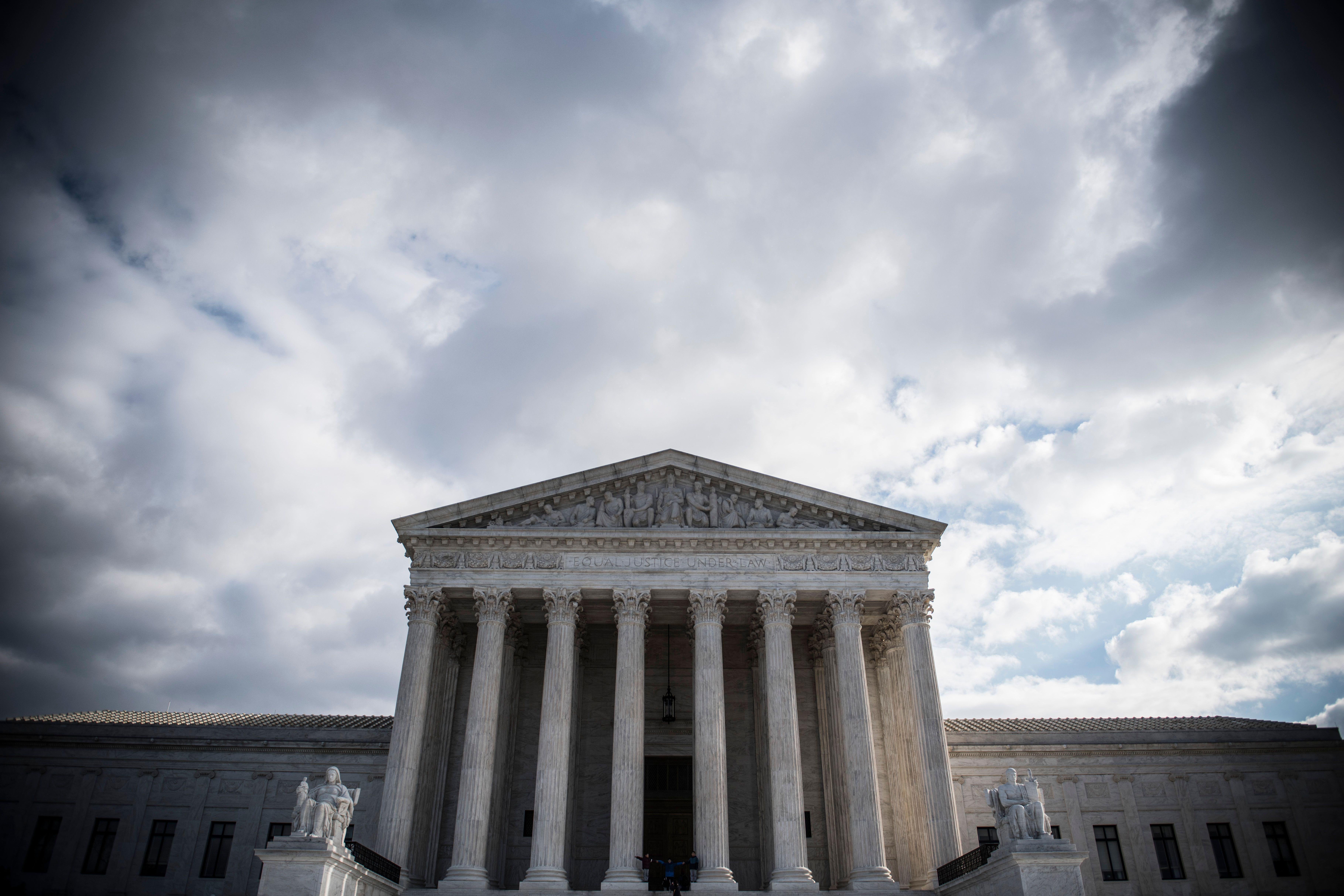Justice Ruth Bader Ginsburg’s death presents Donald Trump with an opportunity to transform the United States far beyond most Americans’ comprehension. Replacing the justice with a conservative would mark the single most consequential act of his presidency. It would doom policies and precedents that have come to form a cornerstone of American law. It’s not hard to foresee what the court could accomplish if Justice Brett Kavanaugh becomes the swing vote.
The consensus among legal and political analysts is that Judge Amy Coney Barrett, whom Trump placed on a federal appeals court in 2017, is the leading candidate to fill Ginsburg’s seat. Barrett gained fame during her confirmation hearing after Democratic Sen. Dianne Feinstein made inappropriate comments about the judge’s devout Catholic faith. She is a hardcore conservative, but that description doesn’t quite capture how radically her jurisprudence differs from Ginsburg’s. The justice viewed the Bill of Rights and civil rights acts as generous guarantees of human dignity that must be read expansively to achieve their purpose. By contrast, Barrett’s view of the law is fundamentally cruel. During her three years on the 7th Circuit Court of Appeals, Barrett has either written or joined a remarkable number of opinions that harm unpopular and powerless individuals who rely on the judiciary to safeguard their rights.
Faced with two plausible readings of a law, fact, or precedent, Barrett always seems to choose the harsher, stingier interpretation. Can job applicants sue employers whose policies have a disproportionately deleterious impact on older people? Barrett said no. Should courts halt the deportation of an immigrant who faced torture at home? Barrett said no. Should they protect refugees denied asylum on the basis of xenophobic prejudice? Barrett said no. Should they shield prisoners from unjustified violence by correctional officers? Barrett said no. Should minors be allowed to terminate a pregnancy without telling their parents if a judge has found that they’re mature enough to make the decision? Barrett said no. Should women be permitted to obtain an abortion upon discovering a severe fetal abnormality? Barrett said no.
There is no question that, if confirmed, Barrett would cast the fifth vote to either hollow out Roe v. Wade or overturn it altogether. Similarly, there is no doubt that Barrett would dramatically expand the Second Amendment, invalidating gun control measures around the country. It’s quite possible, perhaps even likely, that within a year of her confirmation, Americans will be forbidden from terminating a pregnancy in 21 states—but permitted to purchase assault weapons and carry firearms in public in every state.
Abortion and guns, however, are just the beginning. Barrett’s confirmation would heighten the odds that the Supreme Court will eradicate the entire Affordable Care Act in 2021, stripping health insurance from more than 20 million people. Red states challenged the law after Congress zeroed out the penalty for those who forgo health insurance in 2017, a frivolous challenge that nonetheless found support among conservative judges in the lower courts. Chief Justice John Roberts, who twice saved the ACA, seems unlikely to kill it now. Barrett has criticized Roberts’ 2012 opinion saving the law, suggesting she would join the other four conservatives to destroy it root and branch. That decision would reverse Medicaid expansion, abolish the exchanges and federal subsidies for insurance, end protections for preexisting conditions, erase what’s left of the contraceptive mandate, allow insurers to kick young adults off their parents’ plans, and much more. All available data indicates that people will die as a result of such a ruling.
Barrett and her conservative colleagues would also take a machete to the thicket of laws that protect the health and safety of millions of Americans. The current conservative justices have already telegraphed their desire to invalidate federal statutes that direct executive agencies to limit pollution, guard against labor exploitation, monitor Wall Street, and protect consumers from predatory practices. Barrett’s confirmation would be a catastrophe for the climate: She may well overrule the landmark 5–4 decision, long despised by conservatives, that compels the federal government to regulate carbon emissions. Even if Congress passes new legislation to curb greenhouse gas emissions, the court’s conservative supermajority may strike it down, much as the Republican-appointed justices blocked the Clean Power Plan in 2016.
Many more precedents that have become ingrained in the fabric of American life would be thrown into peril upon Barrett’s confirmation. Affirmative action. Miranda rights. Marriage equality. DACA. Independent agencies. What remains of the Voting Rights Act. Ginsburg understood this—hence her deathbed plea to be replaced by “a new president.” McConnell understands this, too—hence his near-instant statement that he intended to help Trump install a new justice. In 2016, he justified blockading the nomination of Merrick Garland by insisting that “the American people” should decide. But McConnell knows that this opportunity is far too important to leave in the hands of the American people this time around.
Whether or not they admit it, every judge on Trump’s current Supreme Court short list must realize that accepting a nomination to fill Ginsburg’s seat before Jan. 20, 2021, would mean spitting on the late justice’s grave. In the late stages of metastatic pancreatic cancer, surely in severe pain, Ginsburg had one last wish: not just to spare her legacy, but to save the court from the politicization and delegitimization it will suffer if Trump replaces her. Should Barrett accept the nomination anyway, it will tell us everything we need to know about her character. And should the Senate confirm her, Democrats must honor Ginsburg’s entreaty by committing themselves to reversing the damage by any means necessary.

